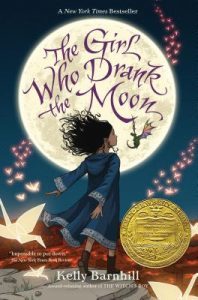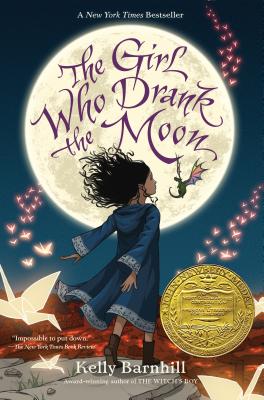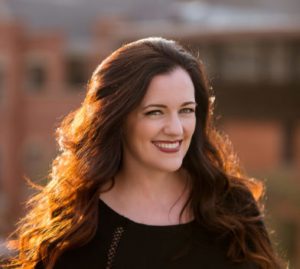Craft Review by Lindsay Lackey
Rules, glorious rules. If there is one thing writers know well, it’s the rules.
Write what you know. Show don’t tell. Start with action. You know the drill. They aren’t all bad, really. Rules are lane markers. They protect us and can even empower us.
But rules, as they say, are meant to be broken. Sometimes.
As readers and writers of children’s literature, we have grown accustomed to certain rules, too, even if we don’t always realize it. Children’s books shouldn’t have too many adults. Antagonists should get their comeuppance. Narrative shouldn’t rely on flashbacks.
But rules are meant to be broken. Sometimes.
 In The Girl Who Drank The Moon, Kelly Barnhill breaks all kinds of rules. She is a merry scofflaw, skirting and smashing rules with poetic flare. She does this so well, in fact, you might not even realize she’s doing it. I didn’t. So swept up was I in her stunning language and beautiful imagination that I never once noticed the wreckage of rules along the forest floor.
In The Girl Who Drank The Moon, Kelly Barnhill breaks all kinds of rules. She is a merry scofflaw, skirting and smashing rules with poetic flare. She does this so well, in fact, you might not even realize she’s doing it. I didn’t. So swept up was I in her stunning language and beautiful imagination that I never once noticed the wreckage of rules along the forest floor.
That is, until the MG Lunch Break [in-person middle grade discussion group] conversation revealed The Girl Who Drank the Moon to me in a whole new light. The book, as one participant bemusedly said, “broke all the rules we’re told to follow.”
As you’re probably aware by now, this book won the Newbery. So it’s safe to say that being a scofflaw certainly didn’t hurt Barnhill or The Girl Who Drank the Moon. But did rule-breaking strengthen Moon?
Opinions will vary on this, certainly. But here are two rules Barnhill happily tossed aside in a way that both amazed and challenged my own writing.
Adults, Adults, Adults
Perhaps the most noticeable divergence from the Kid Lit Rule Book (if there really is such a thing) is Barnhill’s decision to give a large portion of Moon to adult characters.
The book opens with an italicized, fairy tale-like reminiscence by an adult to a child. (More about this later.) In the second chapter, we meet Grand Elder Gherland, following his POV for nearly eleven full pages. Chapter three is from the POV of Xan, the old Witch who rescues the abandoned babies. Then the swamp monster gets a turn.
In fact, we don’t reach Luna’s POV until chapter 7! That’s page 50. And even then, much of the chapter is still told through the lens of the other, adult, characters.
The book itself is, arguably, Luna’s story. She’s the one in the title, after all. But Barnhill frames Luna’s story within the much larger context of the lives of those around her. In some cases, those lives are centuries old. You don’t get more adult than that!
Though this adult-centric structure feels like it breaks the kid lit rules, maybe Barnhill’s choice is actually following the rules of real life. After all, aren’t children largely defined by the boundaries given to them by adults? Don’t the histories of the adults who raise us play a huge part in our own shaping, whether we realize it or not?
Luna, from the very beginning, is deeply shaped by her adults. Her mother’s ferocious protectiveness and love stitches their hearts together in a way that years and grief cannot sever. Xan’s foggy memory causes her to inadvertently make Luna’s memory unreliable, and her magic more dangerous. Fyrian’s overestimation of his size teaches Luna not to underestimate his friendship. Again and again, the adults shape Luna. And understanding their side of things gives us, the reader, a richer experience of Luna’s world.
Action: Consider breaking the rules with Kelly Barnhill on this in your own WIP. What adult characters might inform your child characters? Do you know the history of your adult characters well enough to see how it affects their decisions? Try writing a chapter or a crucial scene from the perspective of an adult, and see what happens. Maybe, like Luna, you’ll discover a magic you didn’t know was there.
Fairytale or Flashback?
How many times have you seen agents or editors caution writers against starting a story with flashback? It’s another rule: Don’t start with flashbacks or a dream sequence or info-dumps.
So…what about a fairy tale told in italics by an anonymous adult to an unknown child? And what if that fairy tale has a dreamlike quality and is a vessel conveying lots of important information?
I can’t help but think that if these questions were asked at an editors’ panel, the answer would be a resounding, “Don’t do that.” However, the answer to these questions in the case of The Girl Who Drank the Moon was a Newbery. So.
Rules: broken.
One of the reasons Barnhill’s choice here works for the story is because the limitations of the fairy tale-teller’s perspective are increasingly evident. Initially, the reader relies on the fairy tale to convey information just as much as the anonymous child recipient does. As the novel progresses, however, the reader becomes more informed than the storyteller. This subtle shift in power ultimately turns the anonymous adult narrator into a character of sorts, complete with flaws and blind spots.
Frankly, this is rule breaking with real purpose behind it. By allowing the reader more insight and information than the voice we initially trusted as an authority, Barnhill allows us to experience growth and revelation in much the same way Luna does. We start with limited knowledge, totally dependent on an adult to relay it to us, and end up understanding the story–its characters, its history–more broadly than our teacher.
Go on. Be a scofflaw.
Though I was initially so enamoured with this book that I didn’t even notice Barnhill’s disregard for the “rules” of writing kid lit, I ended up deeply appreciating her rebellious nature. The more I thought about her rule-breaking, the more layered and vibrant Luna’s story became.
Rules are important, but they can be limiting. If we put too much emphasis on them, we risk losing wonder and freedom in our writing. In the words of C.S. Lewis, “Courage, dear heart.” Allow yourself to buck convention a bit in your own writing and discover the magic swirling just below the surface. Take a risk. Be a scofflaw. Let the magic out.
Lindsay Lackey is an author of middle grade fiction and former library services worker. She was born in Colorado, but now lives in the San Francisco Bay Area with her husband and their spoiled dog. ALL THE IMPOSSIBLE THINGS is her debut novel.
Find her at www.lindsaylackey.com


That’s a wonderful enticement for me to read the book.